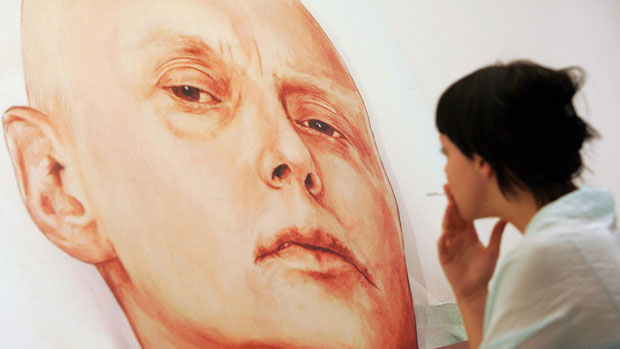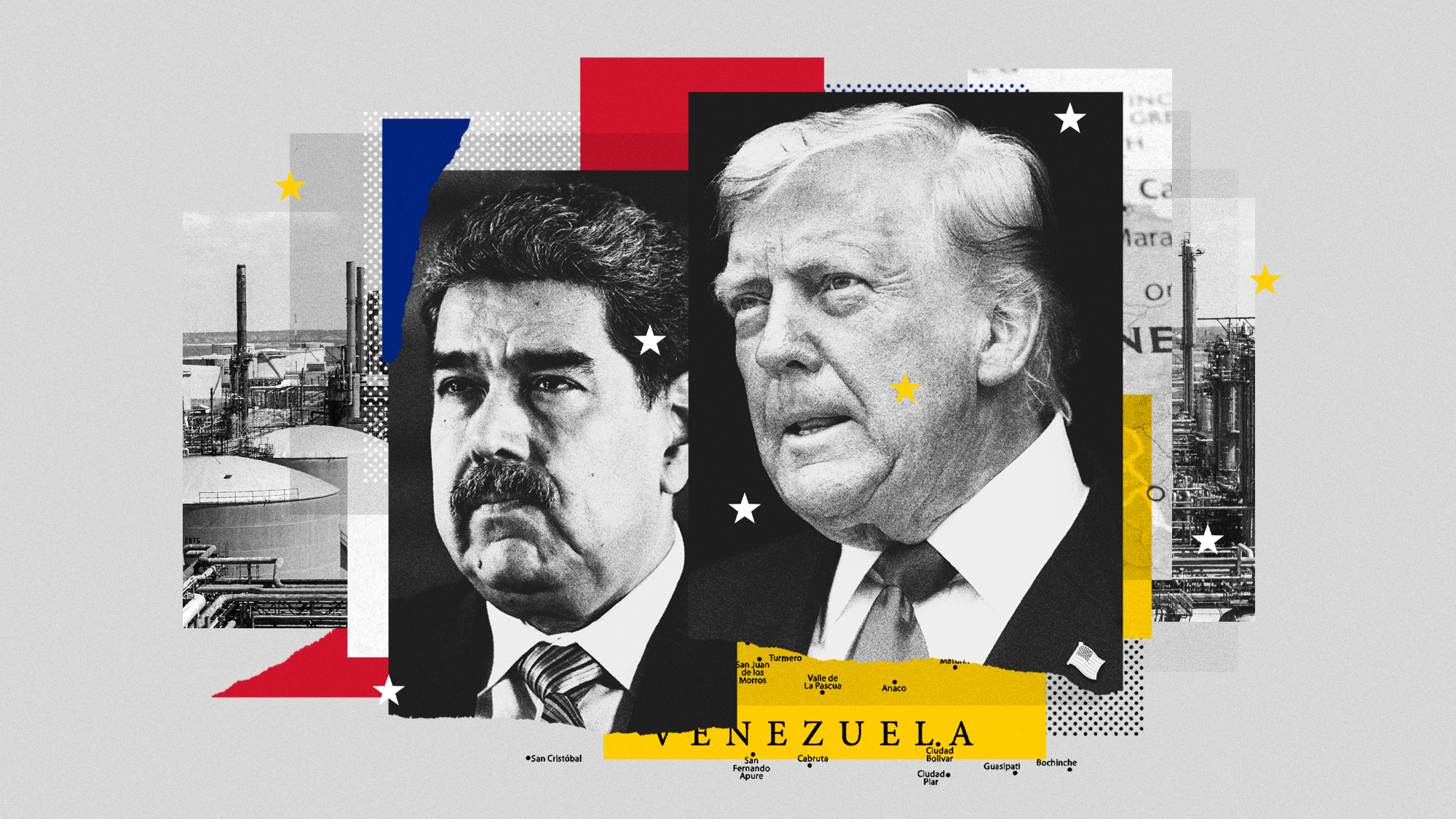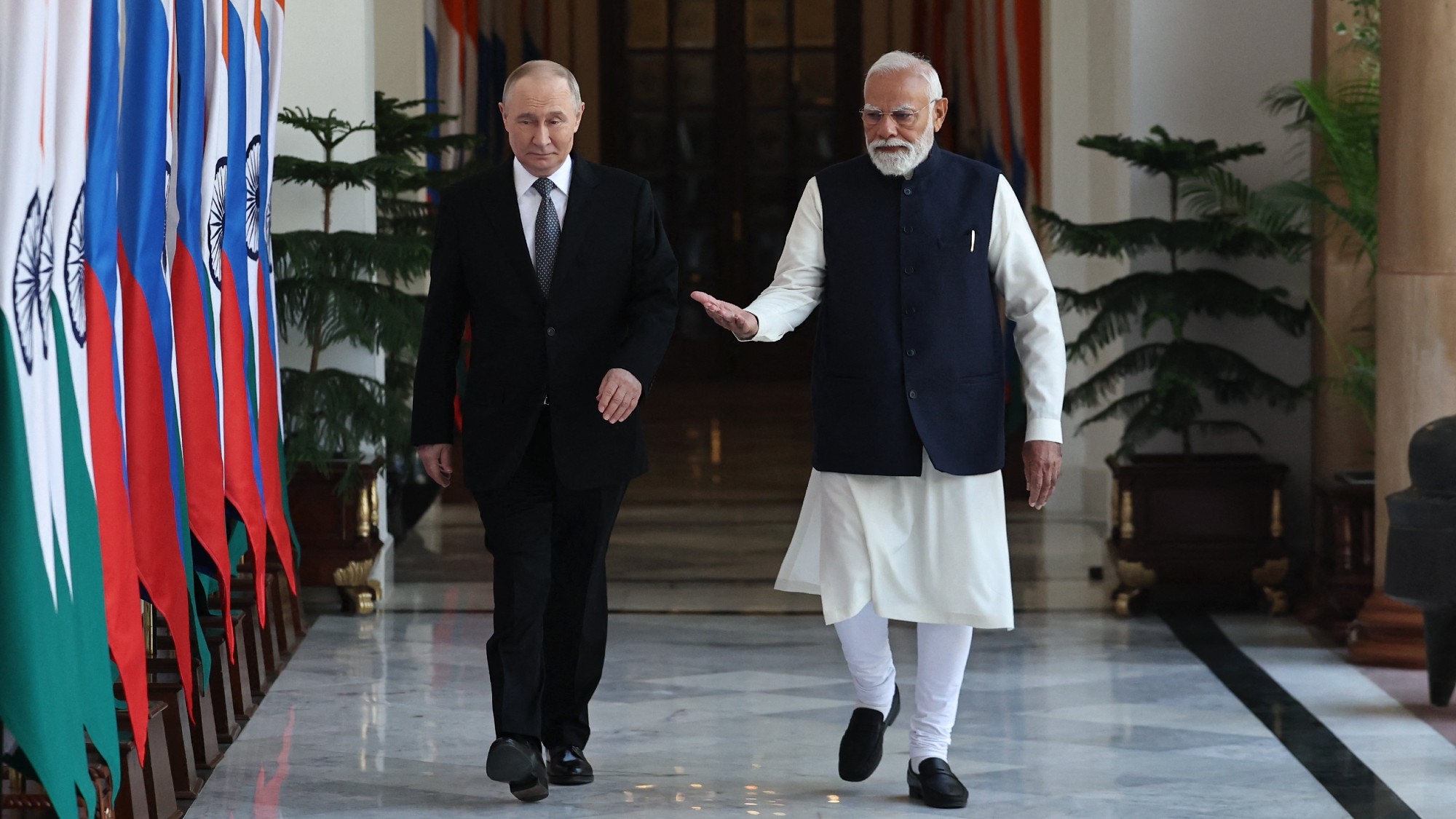Litvinenko inquiry is launched: now there's a coincidence!
Until now, government didn't want to risk Russian relations: after MH17, we're happy to upset Putin

A free daily email with the biggest news stories of the day – and the best features from TheWeek.com
You are now subscribed
Your newsletter sign-up was successful
Home Secretary Theresa May is to announce today that a public inquiry will be held into the fatal poisoning in London of the one-time Russian KGB agent Alexander Litvinenko, raising the very obvious question - why has the government waited until now?
May will argue that she was forced into it by a court ruling in February. But Nick Robinson, the BBC's political editor, is among the growing chorus of commentators who clearly see the timing wrapped up in the downing of MH17 over Ukraine, allegedly by pro-Russian separatists with missiles supplied by Moscow.
Until now, May has always said that a public inquiry would not be helpful to Britain’s international relations, meaning the Foreign Office didn’t want to upset former KGB chief Vladimir Putin with an inquiry into his old outfit's methods for silencing his critics. Why has she changed her mind? To put it bluntly, Britain no longer cares if it upsets the Russian president.
The Week
Escape your echo chamber. Get the facts behind the news, plus analysis from multiple perspectives.

Sign up for The Week's Free Newsletters
From our morning news briefing to a weekly Good News Newsletter, get the best of The Week delivered directly to your inbox.
From our morning news briefing to a weekly Good News Newsletter, get the best of The Week delivered directly to your inbox.
"The security services have long been telling anybody who would listen that he [Litvinenko] was murdered by the Russian state with their direct involvement," Robinson said on Radio 4's Today programme this morning. "He was poisoned in other words.
"Yet the government has resisted a public inquiry even when there have been calls from the family and the judge in the inquest. I think what the government has decided to do is to lift their objections at a diplomatically more convenient time."
Or as he put it more bluntly in a later tweet: "Home Sec long resisted calls for Litvinenko enquiry citing 'international relations'. Good relations with Putin no longer a priority."
Litvinenko, a 43-year-old ex-KGB agent who fled to Britain in 2000, died from poisoning by radioactive polonium-210 after having tea with two Russian men, one of them a former KGB agent, at a London hotel in 2006.
A free daily email with the biggest news stories of the day – and the best features from TheWeek.com
His family believes he was working for MI6 at the time and that he was killed on the direct orders of the Kremlin. In February, his widow, Marina Litvinenko, won a High Court ruling that the Home Secretary should reconsider her decision not to hold an inquiry and to make do with a judge-led inquest.
The ruling means that, for the first time, there can be an official investigation into whether the Russian state and the KGB were involved.
Meanwhile, David Cameron’s new Foreign Secretary, Philip Hammond, will try to persuade his colleagues at a meeting of EU foreign ministers today to agree tough united sanctions against Putin’s Russia over the downing of the Malaysian Airlines plane.
It’s like herding cats: France is selling Putin two warships (something Cameron yesterday told MPs would be “unthinkable” for the UK) and has no intention of halting that sale, while Germany's Angela Merkel won’t shut off the tap of Russian gas to Europe.
Cameron has few grounds for complaint, however, because we know he has not been prepared to exert any pressure on Moscow by stopping Russian oligarchs coming to London with their money.
At the time of Russia's annexation of Crimea from the Ukraine, Cameron's deputy national security adviser Hugh Powell blundered into Downing Street carrying a briefing note on which cameras could easily pick out the words: "UK should not support for now, trade sanctions ... or close London’s financial centre to Russians."
So the best Cameron can do is poke Putin in the eye with the Litvinenko inquiry, and hope that Hammond gets a little more respect from his fellow foreign ministers than he did from fellow prime ministers when he tried and failed to block Jean-Claude Juncker's appointment as EU Commission president.
-
 Companies are increasingly AI washing
Companies are increasingly AI washingThe explainer Imaginary technology is taking jobs
-
 The 9 best steroid-free players who should be in the Baseball Hall of Fame
The 9 best steroid-free players who should be in the Baseball Hall of Famein depth These athletes’ exploits were both real and spectacular
-
 ‘Bad Bunny’s music feels inclusive and exclusive at the same time’
‘Bad Bunny’s music feels inclusive and exclusive at the same time’Instant Opinion Opinion, comment and editorials of the day
-
 Trump’s ‘Board of Peace’ comes into confounding focus
Trump’s ‘Board of Peace’ comes into confounding focusIn the Spotlight What began as a plan to redevelop the Gaza Strip is quickly emerging as a new lever of global power for a president intent on upending the standing world order
-
 The high street: Britain’s next political battleground?
The high street: Britain’s next political battleground?In the Spotlight Mass closure of shops and influx of organised crime are fuelling voter anger, and offer an opening for Reform UK
-
 Trump considers giving Ukraine a security guarantee
Trump considers giving Ukraine a security guaranteeTalking Points Zelenskyy says it is a requirement for peace. Will Putin go along?
-
 What have Trump’s Mar-a-Lago summits achieved?
What have Trump’s Mar-a-Lago summits achieved?Today’s big question Zelenskyy and Netanyahu meet the president in his Palm Beach ‘Winter White House’
-
 Why, really, is Trump going after Venezuela?
Why, really, is Trump going after Venezuela?Talking Points It might be oil, rare minerals or Putin
-
 Moscow cheers Trump’s new ‘America First’ strategy
Moscow cheers Trump’s new ‘America First’ strategyspeed read The president’s national security strategy seeks ‘strategic stability’ with Russia
-
 Is a Putin-Modi love-in a worry for the West?
Is a Putin-Modi love-in a worry for the West?Today’s Big Question The Indian leader is walking a ‘tightrope’ between Russia and the United States
-
 Is a Reform-Tory pact becoming more likely?
Is a Reform-Tory pact becoming more likely?Today’s Big Question Nigel Farage’s party is ahead in the polls but still falls well short of a Commons majority, while Conservatives are still losing MPs to Reform